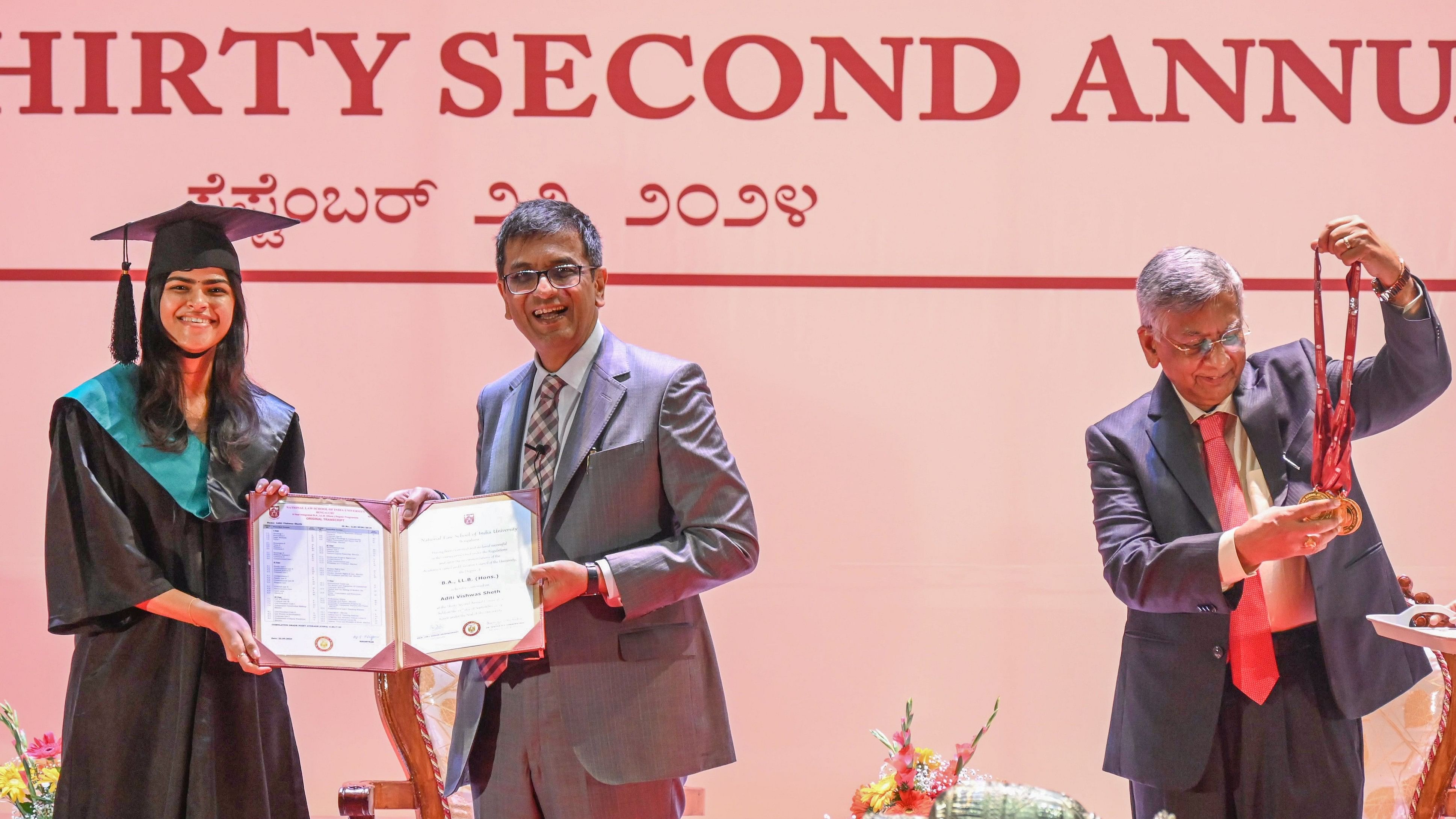
Chief Justice of India Dhananjaya Y Chandrachud, who is alsoChancellor of National Law School of India, presents the degree certificate to Aditi Viswas Sheth at the 32nd annual convocation of National Law School of India University in Bengaluru on Sunday. Attorney General R Venkataramani is also seen.
Credit: DH Photo/ S K Dinesh
Bengaluru: Chief Justice of India Dhananjaya Y Chandrachud on Sunday said patience, humility and compassion were the three key virtues for a successful legal career.
He spoke at the 32nd annual convocation of the National Law School of India University (NLSIU).
The CJI quoted American memoirist and poet Maya Angelou during his 20-minute speech that started with his reflection on law convocations, which he dubbed as the stage to reflect on the past and see the completely transformed person.
Pointing out the role of colleges in transforming a person, CJI Chandrachud said that one enters the campus with several questions, heavily influenced by their social circle, and perhaps carrying a little baggage, but while leaving, the individual will be a transformed person.
“The student will be enriched by the diversity of the campus, experiences of teamwork under pressure, and learning to engage with different viewpoints from people who lived entirely different experiences,” he said.
Stressing the importance of patience, he said the exigencies of the rapidly changing world, climate change and eagerness to change social evils were making us seek short-term results for complex society problems, but those solutions would not be sustainable.
“The urge to act with immediacy is unsustainable in the long run. Make sure changes in good institutions in a stable democracy take place incrementally. Decisions made in haste drain us and impact our mental health adversely,” the CJI said.
He narrated his own experience of a review petition concerning a death penalty case to underscore the meaningful results followed by the patient approach.
“Judges sometimes ask peculiar questions. I once asked such a peculiar question when I was dealing with a review petition against an order confirming a death penalty award. I asked the lawyer, ‘How long will you take?’ The lawyer responded that, ‘If you have the patience, I will persuade you.’ We gave that little bit of patience that afternoon, but it resulted in the acquittal of the accused,” the CJI shared.
The CJI urged the students to trust their instincts while making decisions.
“Remember to pause and listen to your instincts. They are reflections of training and experiences. Trust in the preparations and yourself. Don’t underestimate the power of your unique voice and perspective; as you embark on your career, take pride in your individuality,” he said.
He then advocated the importance of being compassionate. “Be a compassionate human. Why do we address first person in courts? We become the voice of the client,” the CJI said.